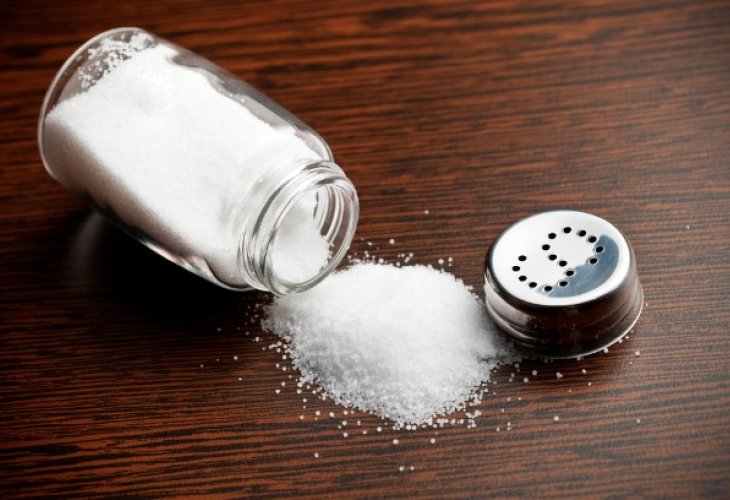Jewish Law
Salt on the Table
The importance of placing salt on the table before making the blessing of Hamotzi, both on Shabbat and weekdays
- Mifaskei Rabbi Ovadia Yosef
- |Updated

Answer: The Gemara in Tractate Berachot (40a) explains: "Rava bar Shmuel said in the name of Rabbi Chiya, the one who breaks bread is not permitted to recite the blessing until salt or a side dish is brought [to the table]." This means that one should not recite the blessing of Hamotzi over bread until salt, or a salad, or the like, is placed on the table to dip the bread into. This requirement is codified by the Rambam (Chapter 7, Halacha 3), the Tur, and the Shulchan Aruch (Siman 167, Section 5).
Early halachic authorities provided two reasons for this obligation. The Ra'ah explains that it is necessary to have salt on the table because bread without salt is not as suitable for eating and therefore not suitable for a blessing. The Halachot Gedolot explains that if salt is not placed before the person before he recites the blessing, there is concern that he might ask for salt after he recites the blessing (but before he eats the bread). Since one should not speak between the blessing and eating, it was established that salt should be placed on the table before the blessing is made. This is also the opinion of the Vilna Gaon. (And, even though if one speaks about matters related to the meal before eating the bread, he does not need to repeat the blessing - and, as such, if he asked for salt before he ate the bread, he would not need to repeat the blessing - nevertheless, ideally, one should not interrupt even in a permissible manner.)
Halachic authorities qualify that this obligation is not a fundamental requirement and only applies at times when the bread was completely bland and was therefore rarely eaten without salt. However, in our times, when bread is flavored with salt before it is baked, there is no fundamental obligation to place salt on the table. It is also explained that if the bread is clean, like our wheat bread, which is suitable for eating even without salt, there is no fundamental obligation to place salt before the one making the blessing. Similarly, if the one making the blessing intends to eat the bread alone, even if it is not flavored at all, there is also no fundamental obligation to eat it with salt, because in this case, none of the reasons cited by the authorities apply.
Rabbi Yosef Cairo explains in the Shulchan Aruch that if the bread is clean, such as wheat bread, or if it is seasoned with salt, like the bread we eat today, or if the one making the blessing intends to eat it alone without any additions, there is no need to wait until salt is placed before him before making a blessing.
Nevertheless, there is a common custom to place salt on the table from the time the blessing is recited until the end of the meal, and this was also the custom of Rabbi Ovadia Yosef zt"l, who was meticulous about this practice both on Shabbat and weekdays. This practice reflects the position of the Rama who explains that it is a mitzvah to place salt on every table before breaking bread, because the table is similar to an altar, and eating is like a sacrifice (insofar as the act of eating gives one strength to serve His Creator), and it is said (Leviticus 2), "With all your offerings you shall offer salt," and it protects one from calamity.
Therefore, it is proper to place salt before the one making the blessing, even on weekdays, and certainly on Shabbat, in line with the prevalent custom in Jewish homes.
The "Halachic Rulings of Rabbi Ovadiah Yosef" series is provided courtesy of the "Daily Halacha" website.
To subscribe to the "Daily Halacha" click on this link: www.halachayomit.co.il

